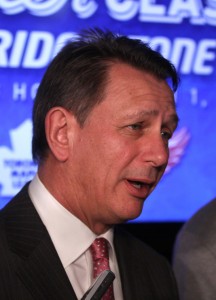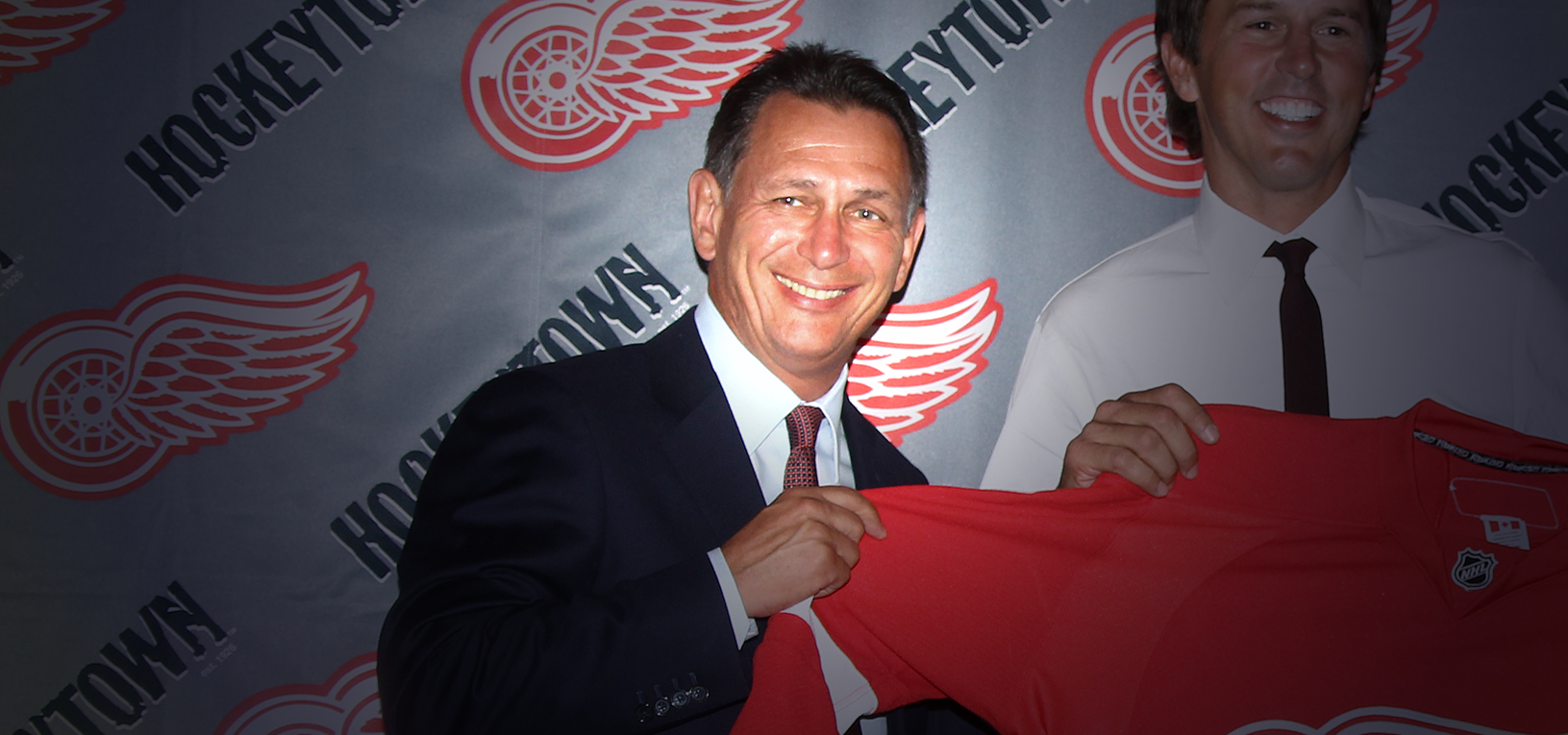Detroit GM Ken Holland: The best in the business

By Dave Waddell –
Few businesses in this country get scrutinized daily like a National Hockey League franchise and there are even fewer managers who run their operations as successfully as Detroit Red Wings’ general manager Ken Holland.
With his team having won more Stanley Cups (three) and more games than anyone else in the league since he became GM in 1997, Holland knows more than most about what it takes to build winning organizations and even harder, how to maintain it.
Interestingly, in a business were results are instantaneous and stakeholders (fans) more vocal, Holland sounds like a disciple of that preacher of investing patience, Warren Buffett.
“Very conservative, very slow, patience, patience, patience,” said Holland explaining his managerial philosophy.
“It’s better to get someone there (NHL) one year late, rather than two years too early. When you do that, it’s a mistake.
“It (success) is like a ladder, you’re meticulously adding one piece at a time. There’s no other way.”
Holland isn’t hesitant to share the humble path a Grade-12 graduate has taken to become recognized as arguably the finest general manager in professional sports over the past 15 years.
It is a path that began when his nine-year playing career as a largely minor-league goalie had ended in the spring of 1985 and he was fighting off his mother’s push to take a job in his native Vernon, B.C. as a door-to-door vacuum cleaner salesman for Electrolux.
“It (success in business) all starts with passion,” Holland said.
“I hire people with passion. I like to be around people with passion.
“If you find your passion, you never go to work. You wake up every day to do something you love.
“If it’s a job you’re going to, at some point, you mentally burn out.”
As he weaves his stories together, it became clear that Holland’s greatest strength as a GM isn’t in spotting hockey talent. It’s in managing people.
“Success isn’t just one person,” said Holland, who avoided the vacuum business when the Wings offered him a scouting job in 1985.
“It’s a lot of people. There are games happening all around the world and you need people out there gathering information.
“When I came to Detroit in 1994 as assistant GM, it was like coming to the Harvard of hockey. I got to learn from great owners in the Ilitches, Jimmy Devellano and Scotty Bowman.”
Holland’s skill is in identifying the most vital pieces of information in making his decision. And ultimately those final decisions are his once he’s listened to his staff make their pitch.
Just how successful is Holland in managing his people?
In an era when the labor force is more transient than ever, the Wings’ front office and scouting staff have been together for about 20 years. Ironically, that’s the same length of time it’s been since Detroit began their streak of consecutive playoff appearances.
With such stability, Holland said the Wings have developed their plan and everyone in the hockey operations department understands it.
“I read Theo Epstein, general manager of the Chicago Cubs, has a 100-page book,” Holland said. “We don’t have a book, but the plan is in our head.
“The plan is patience. The plan is commitment. The plan is to win.
“I believe in sacrificing. Adversity is important to developing players.
“I like when players struggle in their first year in the minors. That’s part of being successful.
“That’s why we let them linger in the AHL. They’ll be better prepared to handle the adversity they’ll face for sure in the NHL.”
Holland said he’s developed his philosophy of not giving people too much too fast or keeping them under a constant state of pressure from his own playing experiences. He said he’s watched far too many promising young players yo-yo between the AHL and NHL while slowly having their confidence destroyed.
“People are way more successful when they’re relaxed and not always under pressure,” Holland said.
“Players play better and people perform better. How can you be at your best otherwise? You can’t.”
Despite his success, Holland draws chuckles from people when he shares the stories of how generous fans are when it comes to offering him advice on how to do his job.
With the passing of the NHL’s trade deadline Feb. 27, Holland got another generous helping of both advice and criticism from the amateur GMs who felt he should have tried to make a big splash.
“We were interested in doing something big, but we weren’t interested in doing something stupid,” said Holland perhaps hinting that he’s keeping his powder dry for this summer’s free-agent market.
“If it’s not there, it’s not there (at the deadline). There are going to be other opportunities.”
However, Holland has the confidence in himself to admit he doesn’t believe he’s the smartest guy in the room.
He solicits opinion in his decision making. He hires people like ‘capologist’ Ryan Martin, who was the brains behind the contracts which secured Detroit’s top players for the long term.
He scours books for fresh thinking, whether it’s the concept of ‘Moneyball’ or the methods of other successful franchises in other sports.
“There’s good ego and bad ego,” Holland said.
“Good ego is having confidence. If you don’t have it, you’ll get chewed up in this league.
“Bad ego is selfishness. That’s about you, not your team.”

